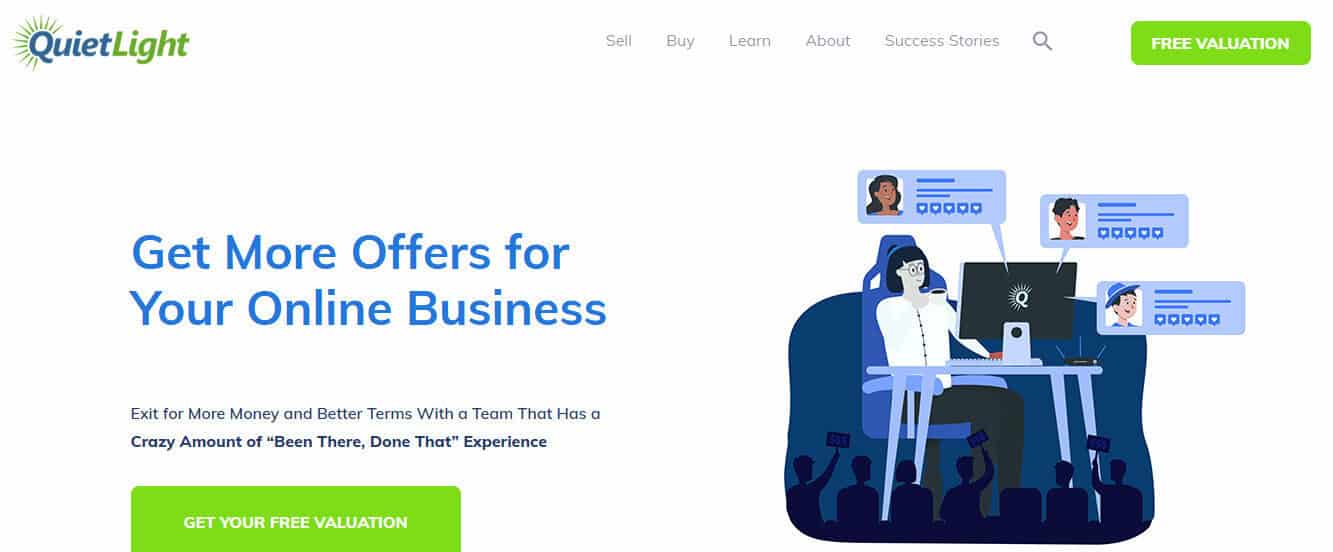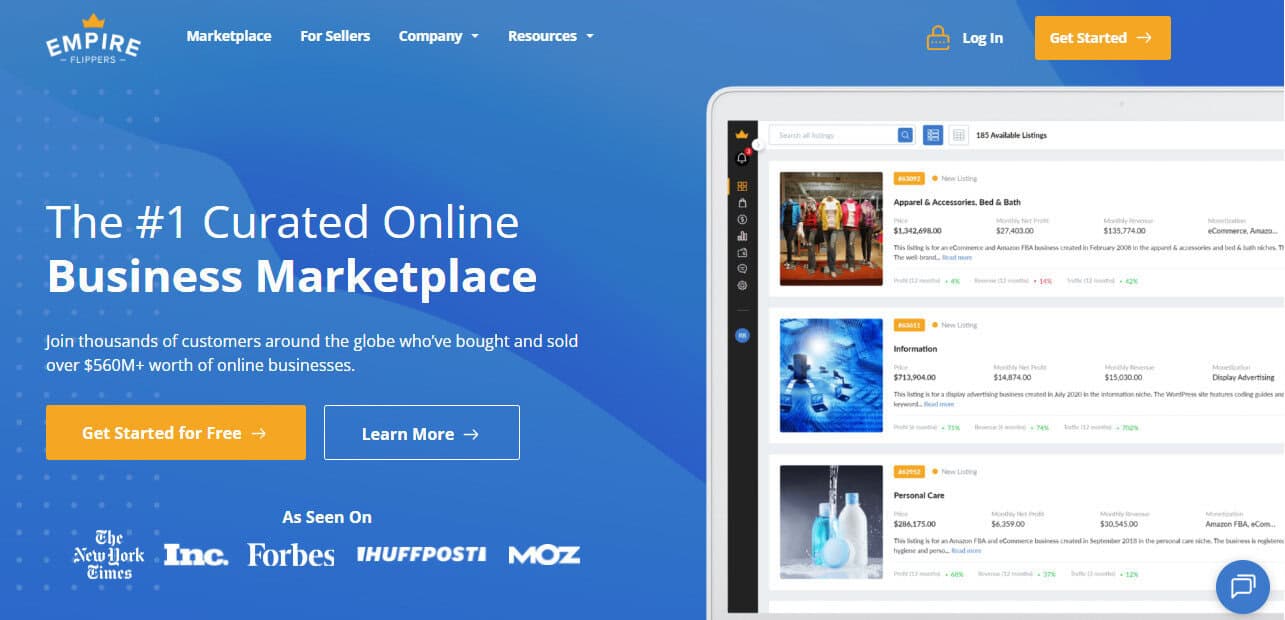- Step 1: Make Your Decision and Stick to It
- Step 2: Set Your Goals
- Step 3: Get a Business Valuation
- Step 4: Get Your Financials and Documents in Order
- Step 5: Boost Your Agency’s Value Before the Sale
- Step 6: Decide How You’ll Sell
- Step 7: Pick the Right Broker
- Step 8: Go to Market
- Step 9: Survive Due Diligence and Close the Deal
- Choosing the Path That’s Right for You
Last Updated on November 25, 2025 by Ewen Finser
Exiting a business you’ve spent years building is an exciting journey, but there are a lot of potential pitfalls you should be aware of. If you don’t give the process the respect it deserves, you could end up leaving a lot of money on the table.
Of course, company sales are always complex, and the higher the transaction value, the more complex they are. So, to make things simpler, I’ve broken down nine of the most relevant steps you’ll likely face along the way.
Step 1: Make Your Decision and Stick to It

Selling a business requires a lot of emotional resilience, and if you’re not fully invested in the process and aware of what your goals are, you won’t be positioned to make the right decisions at the right times.
So if you’ve got a vague notion that you’d like to sell your agency but you’re not yet sure that this is what you really want, sit down and figure it all out before doing anything else.
List the pros and cons of selling, figure out the smallest amount of money you’d be happy to accept, and consider the various implications it would have in your life. Then, make the decision and don’t look back.
Step 2: Set Your Goals
Your goals need to be more detailed than a simple sale price. Other important considerations include:
- All-cash vs. earnout: Under an earnout, you receive part of the payment over time as long as the business meets agreed-upon targets under the new owner. It’s obviously not as preferable as an all-cash deal, but you might be able to negotiate a significant increase in price if you agree to an earnout. Consider your risk tolerance here.
- Transition period: Many buyers will want you to stay for a transitional period (a few months of consulting, or training the new team). If that’s not something you’re willing to do, you need to know in advance.
Step 3: Get a Business Valuation

First things first: I highly recommend getting a broker to handle this part for you. Many reputable brokers offer free initial valuations and can get started with just some information on your financials, clients, and operations.
If you’re doing the math yourself, you’ll base your value on a multiple of your agency’s earnings. For smaller, owner-operated agencies, earnings are often measured as SDE (seller’s discretionary earnings). This is your net profit plus any perks or salary you pay yourself.
For larger agencies with bigger teams and systems, EBITDA (earnings before interest, taxes, depreciation, amortization) will likely be more appropriate.
Step 4: Get Your Financials and Documents in Order
Having your valuation in hand is one thing; proving your company’s worth to potential buyers is another. You’ll need to have your financials ready to go when interested parties come looking for them, as well as other documentation detailing your business operations.
You should pay particular attention to:
- Financial statements: Make sure your profit & loss statements and balance sheets are accurate and up to date for the past few years.
- Bookkeeping practices: If your bookkeeping has been sloppy, consider hiring a professional bookkeeper or a CPA to produce formal financial statements.
- Legal documents and contracts: These may include client contracts, vendor agreements, leases, insurance policies, trademarks/copyrights, employment agreements, and incorporation papers.
- Standard operating procedures (SOPs): A buyer wants to know that your agency will be able to run smoothly without you. This means you need clear, useful SOPs that cover all of your important workflows.
- A confidential information memorandum (CIM): This summarizes your business for potential buyers.
Getting all of these documents together can take months, so the sooner you start, the better.
Step 5: Boost Your Agency’s Value Before the Sale

If you want to get the most out of your sale, you can boost your valuation by doing the following:
- Reducing owner dependency: If you’re heavily involved in the day-to-day of your operations, now is the time to start delegating more. After all, if the business can’t run without you, there’s no reason for a buyer to want to purchase it from you.
- Diversifying and solidifying revenue: Prospective buyers will want a clear view of their path to profitability post-sale. In practice, this means things like retainer contracts, a broad client breakdown, and diverse traffic sources. If there’s a clear single point of failure, this will have a big impact on your valuation.
- Positioning: If you have a specialty, make sure that your marketing presence reflects it. This might involve revamping your website or publishing fresh content.
- Driving short-term growth: Buyers love an upward trend. If you can think of any low-hanging fruit that might boost your revenue in the year leading up to the sale of your business, try to exploit it.
Step 6: Decide How You’ll Sell
Business Broker / M&A Advisor
This is the pathway I recommend for most sales, especially those likely to fetch at least $100,000. Higher-value transactions are complicated, so it’s best to have an expert facilitator on hand to make sure everything goes smoothly.
A good broker will value your business, find buyers, market the listing, field offers, and guide you through negotiations and closing. Their commission is typically 10–15% of the sale price for mid-sized deals.
Marketplace
There are also online platforms like Flippa and BizBuySell where you can list your business for sale (think of it like eBay for businesses). If yours is a smaller agency, this option could work for you, since a lot of the major brokers won’t deal with sales in the low five-figure range. However, you’ll need to do a lot of extra legwork if you go down this route; most of the vetting, negotiation, and closing tasks will fall to you.
Just note that marketplaces can attract a lot of tire-kickers, so finding a qualified buyer can sometimes feel like hunting the proverbial needle in a haystack.
DIY Private Sale
If you can find a buyer by leaning on your own network, you might be able to avoid the expense of a broker or platform altogether. However, this really only works in a minority of cases. Unless you’re experienced when it comes to buying and selling companies, or if you already know a buyer who’s positioned to take over your agency, this isn’t a path I’d recommend.
Step 7: Pick the Right Broker
Quiet Light

Quiet Light is the brokerage I generally recommend to business owners seeking an exit. It’s a high-touch brokerage specializing in online businesses in the $250K to $25M valuation range, claiming that 85% of its listings sell within 90 days.
It’s also one of the best in the business when it comes to client service. The team will provide close guidance through every step of the sale process, including valuation, listing, buyer calls, offer comparisons, escrow, and closing.
FE International

If you’re further into the large-cap section of the market, it’s worth considering FE International’s huge network of buyers (including institutional ones).
You should note that the process here can feel a bit more closed off than what you’ll get with Quiet Light, and there tends not to be much transparency around the ins and outs of the sale process.
Pricing is another area in which FE International could offer a little more transparency; the company doesn’t list its pricing tiers publicly, but anecdotal evidence suggests that FE takes around 15% of the sale price as a commission.
Empire Flippers

Empire Flippers markets itself as the largest curated marketplace for online businesses. Think of it as a hybrid between a broker and a platform; it takes care of a certain amount of buyer vetting on your behalf, but it still functions as a buy-and-sell marketplace rather than a full-service brokerage.
Known for its slick platform and vast buyer pool, Empire Flippers is particularly active in deals involving e-commerce stores, content websites, and FBA businesses.
You’ll get a polished service, but it’s nowhere near the level of service offered by brokers like Quiet Light or FE International. It’s also rather expensive: commissions start at 15%, though they do slide for larger transactions. Also, Empire vets its sellers pretty rigorously, so getting listed can take a while.
Step 8: Go to Market
Crafting the Listing & Prospectus
If you work with a full-service broker, they should take care of this part of the process for you. If not, you’ll need to put a CIM together yourself. This should include an executive summary, financial charts, a client breakdown, growth history, and opportunities for expansion.
If you’re putting your agency on a buy-and-sell marketplace, you’ll also need to create a listing yourself. Formats vary depending on the platform you work with.
Interest and Inquiries
The volume of interest you receive will vary depending on the nature of your business, your pricing strategy, and the forum you use to advertise the listing. You might be inundated with inquiries right away, or it could be crickets for weeks at a time.
If you’re in the former camp, you’ll need to figure out a strategy for separating the worthwhile offers from the time-wasters. Consider creating a response template that you can re-use when replying to an interested party; this template should request all the qualifying information you need to decide whether it’s worth scheduling a call with a given prospect.
Once you start speaking to prospects on the phone, prepare to answer plenty of questions. Serious buyers will want to grill you on your financials, operations, client breakdown, and reasons for selling.
However, there’s no need to worry too much about any of this if you work with a broker, who will take care of most of it on your behalf.
Receiving Offers
Offers generally come in the form of a letter of intent (LOI) that outlines the proposed purchase price, the payout structure, any key conditions, and an exclusivity period for due diligence. These are generally non-binding, but they provide important structure for the final deal.
Once you sign an LOI, your leverage goes down since you’re off the market for a bit. So it’s important to negotiate key points up front.
Step 9: Survive Due Diligence and Close the Deal
Due diligence is often the most nerve-racking part of selling an agency. It’s essentially the buyer’s opportunity to verify that everything you claim is true and uncover any issues before the final purchase agreement is signed.
It typically starts when the buyer sends over a due diligence request list, which is essentially a list of documents to provide and questions to answer. This is broken into categories like financial, legal, clients, HR, etc.
Being prompt and organized during due diligence is crucial, since this is where most deals fall through due to sloppiness.
Choosing the Path That’s Right for You
There’s no such thing as one-size-fits-all when it comes to selling an agency, and you’ll need to think carefully about the approach that’s right for you.
Personally, I recommend going to a specialist brokerage like Quiet Light if your likely deal value is big enough to justify it — you just can’t beat the level of hands-on guidance and support that a broker offers.

